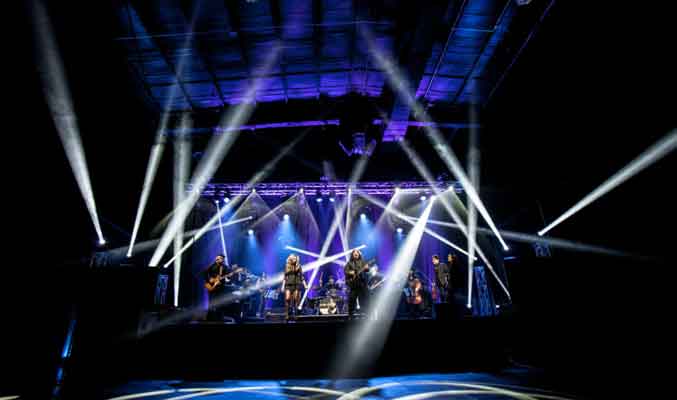Music has long been an integral part of stage performances, adding depth, emotion, and atmosphere to a wide range of theatrical productions. From operas and musicals to plays and dance performances, music has the power to elevate the audience’s experience and enhance the storytelling.
In this article, we will explore the role of music in stage productions, the different genres of music used in theater, and some of the most notable examples of music in the stage.
Role of Music in Stage Productions
Music plays an important role in stage productions, helping to create mood, evoke emotions, and enhance the narrative of the story. It can also serve to transition between scenes, set the pace of the performance, and even provide comedic relief.
In musical theater, music is used to drive the plot forward, with songs and dance numbers often serving as a way to express the characters’ emotions and motivations. In plays and dance performances, music is used to create atmosphere and add an extra layer of meaning to the story.
Genres of Music in Theater
The type of music used in theater varies depending on the genre of the production. Here are some of the most common genres of music used in theater:
- Opera – Opera is a genre of music that originated in Italy in the 16th century. It combines singing, acting, and music to tell a story. Operas typically feature grand, dramatic music that is performed by trained vocalists.
- Musical Theater – Musical theater is a genre that combines singing, acting, and dancing to tell a story. Musicals feature a variety of musical styles, from pop and rock to jazz and show tunes.
- Ballet – Ballet is a type of dance that originated in the Italian Renaissance courts of the 15th century. Ballet is often accompanied by classical music, which helps to create the mood and atmosphere of the performance.
- Plays – Plays are theatrical performances that focus on spoken dialogue. While music is not typically the focus of a play, it can be used to create atmosphere and set the tone of the production.
Examples of Music in the Stage
There are countless examples of music in stage productions, from operas and musicals to plays and dance performances. Here are some notable examples: - The Phantom of the Opera – The Phantom of the Opera is a musical that tells the story of a disfigured musical genius who haunts the Paris Opera House. The show features grand, operatic music and is known for its iconic song “The Music of the Night.”
- Les Misérables – Les Misérables is a musical that tells the story of the French Revolution. The show features a variety of musical styles, including pop and rock, and is known for its powerful ballads and anthems.
- Swan Lake – Swan Lake is a ballet that tells the story of a prince who falls in love with a cursed swan. The ballet is accompanied by classical music and is known for its graceful choreography and hauntingly beautiful music.
- Hamlet – Hamlet is a play by William Shakespeare that tells the story of a prince who seeks revenge on his uncle for killing his father. While music is not typically a focal point of the play, the use of music, particularly the song “To be or not to be,” can add an extra layer of meaning and emotion to the performance.
Conclusion
Music plays an important role in stage productions, adding depth and emotion to a wide range of theatrical performances. From operas and musicals to plays and dance performances, music has the power to enhance the audience’s experience and elevate the storytelling. Whether it’s grand, operatic music or pop and rock anthems, the right music can help to create atmosphere, evoke emotions, and bring a production to life.
![]()





